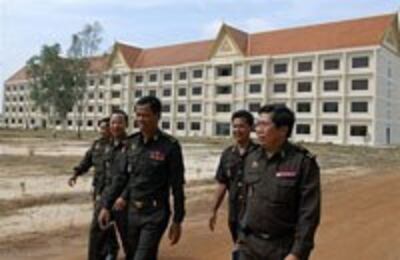
Three decades have passed since Vietnamese troops overthrew the Khmer Rouge, blamed for the deaths of close to 2 million Cambodians between April 1975 and January 1979.
The starvation, forced labor, arbitrary killings, and torture that became hallmarks of Khmer Rouge rule have been widely documented. Yet Khmer Rouge leaders survived, unpunished, in many instances leading peaceful and respected lives until the late 1990s.
Ieng Sary, who was close to Khmer Rouge leader Pol Pot, was granted immunity from the Cambodian government in 1996, and Pol Pot himself died in 1998. That same year, under pressure from the United Nations, Cambodia began working toward creation of a special court to try the Khmer Rouge leadership.
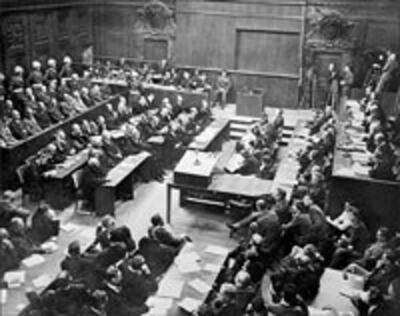
A law was promulgated in August 2001 allowing for the creation of a mixed court, under Cambodian jurisdiction and composed of Cambodian and international judges.
Ta Mok, former Khmer Rouge military commander, and Duch, head of the gruesome Tuol Sleng detention center, were the only Khmer Rouge leaders charged with crimes. Ta Mok died in custody in July 2006.
Here is a look at what other tribunals have achieved, with links to more information on the left.
* * *
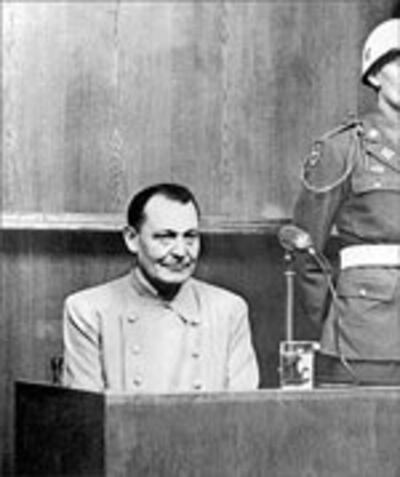
International War Crimes Tribunals are courts of law established to try those accused of committing atrocities and crimes against humanity in wartime. These include genocide, torture, and rape.
Since 1945 several tribunals have been held. Some, like the Yugoslavia Tribunals, have proceeded under United Nations authority. Others, such as the Nuremberg Trials of 1945, were held under the authority of the Allied forces after World War II.
The aim of a tribunal is to offer victims an opportunity to confront the accused and allow the accused an opportunity to explain his or her actions in front of victims, their families, and the media. The ultimate goals are to achieve justice, promote peacebuilding, encourage reconciliation, and begin healing.
In 1998, the International Criminal Court (ICC) in The Hague was established as the first ever permanent, treaty-based international criminal court. It was created, through a treaty signed by 120 countries, to address war crimes and other international crimes.
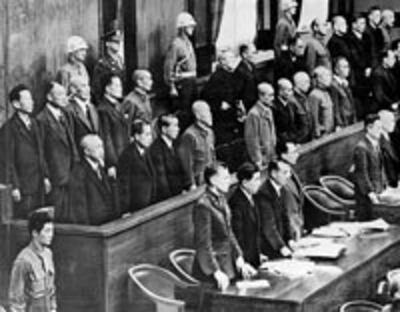
The ICC is designed to complement existing national judicial systems, although it can also exercise its jurisdiction if national courts are unwilling or unable to investigate or prosecute such crimes. It also aims to eliminate the need for ad hoc tribunals such as those established for Yugoslavia and Rwanda.
The United States, Israel, the People's Republic of China, Iraq, Qatar, Libya, and Yemen all opposed the treaty. Experts say it will be several more years before the court is able to try cases.
* * *
Verdicts were announced Sept. 30 and Oct. 1, 1946, resulting in three acquittals, 12 sentences to death by hanging, and seven sentences to life imprisonment or to lesser terms. The sentences of death were carried out on the morning of Oct. 16.
The Tokyo War Crimes Trials
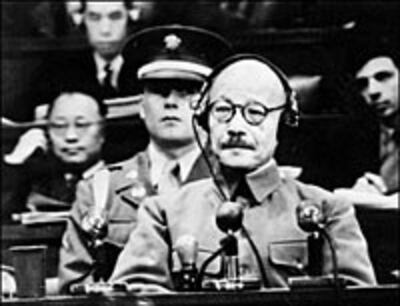
The Tokyo War Crimes Trials took place from May 3, 1946 to Nov. 12, 1948. The International Military Tribunal for the Far East (IMTFE) in Tokyo presided over the court and all Japanese “Class A” war criminals were charged. The prosecution team comprised justices from 11 Allied nations: Australia, Canada, China, France, Britain, India, the Netherlands, New Zealand, the Philippines, the Soviet Union, and the United States.
The two-year trial resulted in many prison sentences. Other war criminals were tried in the respective victim countries, and more than 900 people ultimately faced execution.
International Criminal Tribunal for Yugoslavia
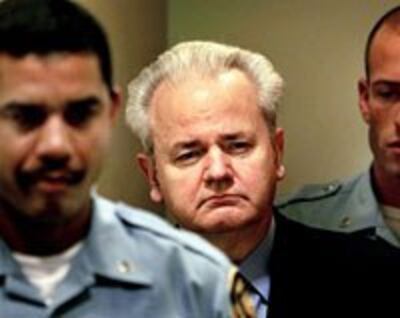
The Bosnian war in the early 1990s saw ethnic cleansing, genocide, and other crimes against humanity. In May 1993, the UN Security Council established the International Criminal Tribunal for Yugoslavia (ICTY) to try those responsible for violations of international humanitarian law in the territory of the former Yugoslavia since 1991. The tribunal's stated goal is to bring justice to victims of the conflict and deter future leaders from committing similar atrocities. The ICTY has also begun to take on cases from the Kosovo crisis of the late 1990s.
The highest-profile figure indicted by the Tribunal was former Serbian president Slobodan Milosevic. Indicted in 1999, he was brought to The Hague to stand trial in 2001. Miloseic died of a heart attack in March 2006 while in custody. Only 50 hours of testimony remained in his case.
The ICTY is the United Nations' first special tribunal and widely credited with helping to redefine how justice is achieved in war crimes cases. It has also come under intense scrutiny. Critics charge that it is a political tool rather than an impartial judicial institution.
International Criminal Tribunal for Rwanda
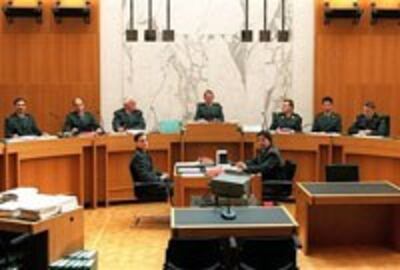
The International Criminal Tribunal for Rwanda was created in 1994 to prosecute those responsible for genocide and other serious crimes in Rwanda during the ethnic conflicts of 1994. The tribunal is also prepared to try individual Rwandans who committed genocide and other crimes in neighboring states. As of June 2006, the ICTR had convicted 25 people. This is a UN tribunal, with an international panel of judges picked from a list submitted by the Security Council and then elected by the UN General Assembly.
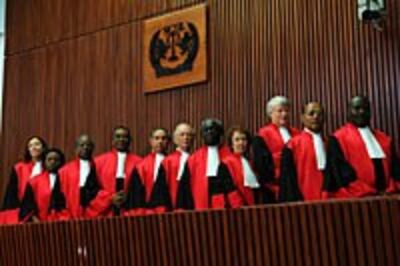
In 2002, the government of Sierra Leone and the United Nations established the Special Court for Sierra Leone. Trials began in June 2004. The Court is mandated to try those who bear the greatest responsibility for serious violations of international humanitarian law and Sierra Leonean law during armed conflicts in Sierra Leone from 1996-2002.
As a “hybrid” or mixed court based in the country where the atrocities occurred, as opposed to being based in The Hague, the Special Court is said to represent a new type of justice system.
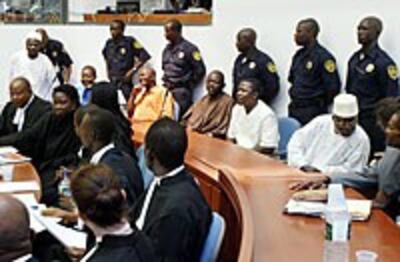
Currently, 11 people associated with all three of the country's former warring factions stand indicted by the Special Court. They are charged with war crimes, crimes against humanity, and other serious violations of international humanitarian law. Specifically, the charges include murder, rape, extermination, acts of terror, enslavement, looting and burning, sexual slavery, conscription of children into an armed force, and attacks on United Nations peacekeepers and humanitarian workers, among others.
Reporting by David Beasley for RFA. Edited by Catherine Antoine and Sarah Jackson-Han.
